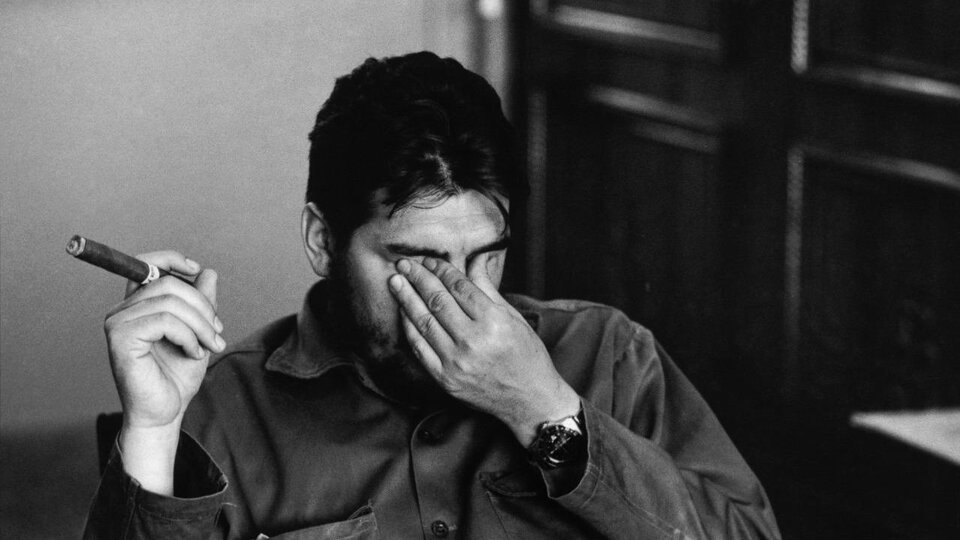
[ad_1]
CHE, MEMORIES OF A SECRET YEAR 7 POINTS
Brazil / Argentina, 2019
Direction and scenario: Margarita Hernandez Pascual
Duration: 79 minutes
First in Cinema.Ar
His name is Ramón Benítez. In April 1965, the Uruguayan businessman landed at Dar es Salaam airport, in Tanzania. He wears a crisp gray suit, a clean-shaven beard, a dark-hued Fedora hat, and black-rimmed glasses. At the beginning of the following year he spent a few months in an apartment in Prague, later in an isolated house. Kill the hours of playing chess and writing. In November 1966, almost bald and with gray hair on his sides, Benítez got off the plane that transferred him from Cuba to the international airport in El Alto, Bolivia, and we will not see him again. Benítez is Che Guevara, to whom a Cuban dentist applied a denture and a harness to his back, to make him look hunched over. Directed by the Cuban-born filmmaker Margarita Hernández Pascual, based in Brazil, Che, memories of a secret year It tells of the period during which Ernesto Guevara lived in hiding, after resigning from the Ministry of Industry in Cuba, with the intention of developing a guerrilla war in Congo. An effort in which he and his men failed miserably.
“Let them be black, very black,” Che asks Cuba, with the intention of arming a guerrilla group that does not arouse suspicion in the heart of Africa. There is a problem: he is white, very white, and this will be an obstacle for the Congolese fighters to obey his orders. On the other hand, these fighters were wasting time doing witchcraft before a war action, they did not have much will to fight and their leader only appeared once in the camp, running in a boat. and accompanied by two beauties. But Che, memories of a secret year It didn’t begin at this point until the beginning of the decade, when Fidel visited Moscow, definitively endorsing the island’s political and commercial ties with the Soviet regime.. Guevara did the same a little later in China, where he held several meetings with Mao Tse Tung. The Politburo suspects: Che would be too pro-Chinese. In 1965, he gave a speech in Algeria, where he accused the countries of the Soviet bloc of “implicit complicity with imperialism”. The link is broken and Guevara assumes it almost immediately, leaving Cuba to forever devote itself to the internationalization of the revolution.
Hernández Pascual reconstructs this period, one of the least known in Che’s history (in particular his stay in Prague), using the most widely used documentary resources: interviews with the survivors of this experience, period images , photos when not. there are some in motion, even the classic little map that describes the routes from one point to another. All in their nineties, they give their precious testimony to the camera of former commanders of the Cuban armed forces and former intelligence agents, participants in the African adventure. They are joined by American journalist John Lee Anderson, a recognized specialist in Latin American issues. There is evidence of the training in Cuba, of the secret nature of the mission (“compartmentalization is sacred”, says one of them), of the Congolese failure, of the trip to Czechoslovakia, which Guevara preferred to Moscow. Objections are hinted at Fidel, who issued his friend’s farewell letter, blocking the way to any attempt to officially return to Cuba. One piece of information is omitted: The defeat began when the murdered Lumumba supporters were not told in advance that Guevara was going to lead them into the jungle. Which provoked logical resentments. Hernández’s film does not build an epic Che, but a failure.
The failed African adventure was officially launched in Cuba just two decades after its arrival in 1985.
.
[ad_2]
Source link
 Naaju Breaking News, Live Updates, Latest Headlines, Viral News, Top Stories, Trending Topics, Videos
Naaju Breaking News, Live Updates, Latest Headlines, Viral News, Top Stories, Trending Topics, Videos